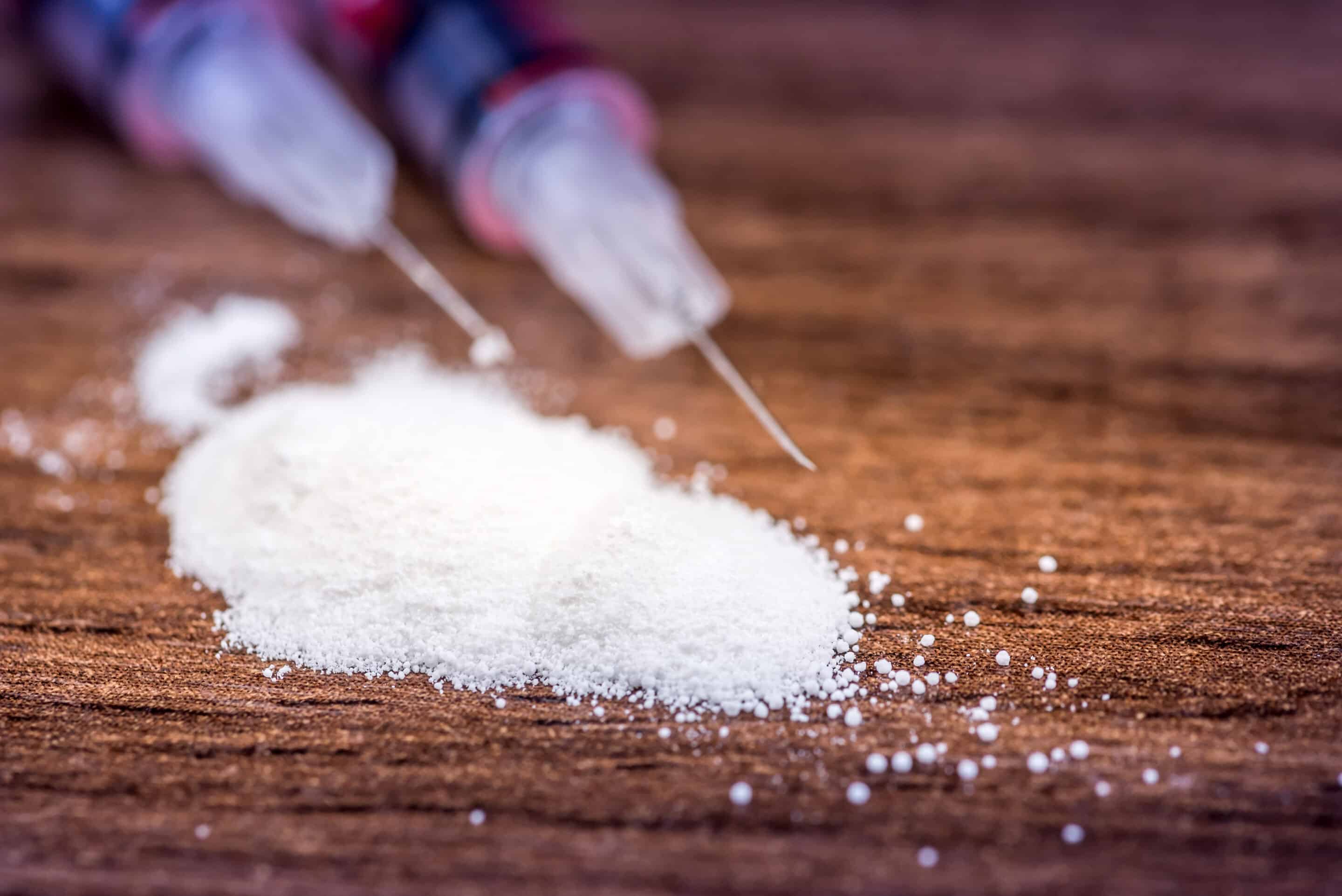Derived from the poppy plant and twice as potent as morphine, heroin is one of the most addictive and abused opioids worldwide. Annually, over 15,000 opioid overdoses in the U.S. are attributed to heroin. Only prescription opioids like oxycodone and hydrocodone, cause more overdoses and deaths than heroin. In fact, many heroin addicts start out using opioids prescribed by a doctor for treating pain or anxiety, only to become addicted before the doctor stops prescribing them.
Currently, Washington, D.C. holds the highest rate of annual heroin overdoses–24 percent. However, Indiana isn’t far behind, with yearly heroin overdose percentages hovering around 17 percent. Nearly 18 out of every 1000 Indiana residents die every year from an opioid overdose. Heroin is responsible for 28 percent of those deaths.
Heroin Paraphernalia
If you suspect a family member or friend is using heroin but don’t want to directly confront them, there are numerous signs you can look for that may indicate they are indeed using heroin. Some of these clues involve discovering certain drug paraphernalia on the person or in their home:
- Spoons with burn marks on them (heroin is cooked in water before it is injected)
- Rubber tubing that addicts use to tie off their arms and force veins to appear
- Discarded cotton balls or cigarette filters (dissolved heroin is filtered before being pulled into a syringe)
- Small glass pipes or pieces of aluminum foil shaped like a pipe (heroin smokers inhale fumes of vaporized heroin that leave a dark residue on pipes or foil)
Physical Signs of Someone High on Heroin
Heroin is a central nervous system depressant that causes extreme drowsiness, slurred speech, and disorientation. An addict who recently used heroin may “nod off” while talking, attempting to eat, or just sitting in a chair. Sometimes you can wake them up but they typically remain unable to maintain focus on what you are saying to them.
Other visible signs of a heroin high include:
- Dry mouth/pasty coating around the lips
- Flushed face
- Constricted pupils (opioids do not dilate pupils)
- Itchy skin (a person under the influence of heroin may continuously scratch their arms, neck, face, etc)
- Occasional nausea and/or vomiting
- Slow breathing
- Clumsiness
Heroin addicts eventually experience a loss of short-term memory (they can’t remember familiar names or faces), make bad choices associated with obtaining heroin (criminal activities), and stop caring about personal hygiene. Due to malnutrition and drug use, they will appear thin and pale, start losing hair, and suffer skin infections from injecting heroin (cellulitis, scabs that won’t heal, bruises).
Heroin Withdrawal Symptoms
Heroin addicts who can’t get heroin will have withdrawal symptoms within six to eight hours from the time they last used. Heroin withdrawal symptoms are highly noticeable because they are severe and cannot be relieved with ibuprofen or OTC flu medications.
Someone experiencing heroin withdrawal will have:
- Chills, fever, and muscle aches
- Nausea and vomiting
- Diarrhea
- Uncontrollable leg spasms and body shaking
- Cramps
- Excessive sweating/cold sweats and/or hot flashes
- Agitation/restlessness/insomnia
Unless treated professionally by heroin detox specialists, heroin addicts undergoing withdrawal could suffer serious medical problems that require emergency treatment. Seizures, convulsions, organ failure, and coma are some of the conditions emerging from heroin withdrawal or heroin overdose.
If you or someone you know is addicted to heroin, please call Hickory Treatment Centers today to learn about getting immediate help for heroin addiction.


